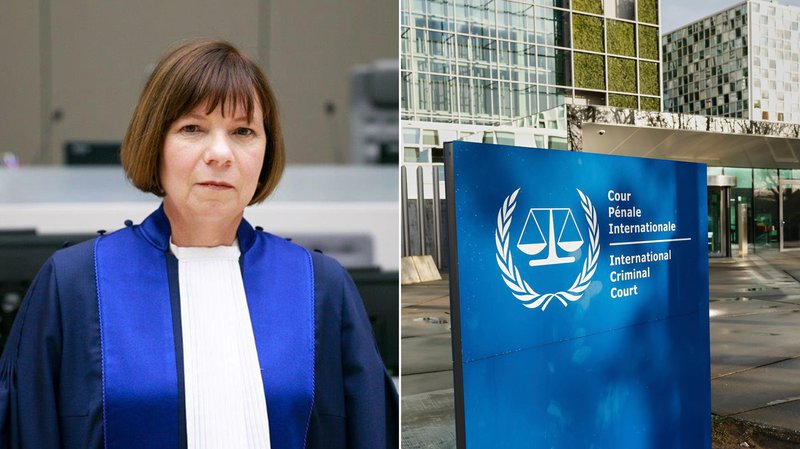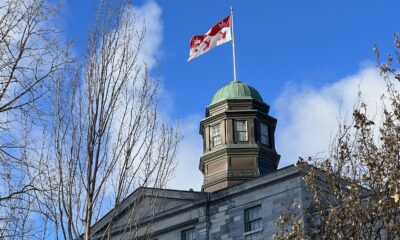Politics
Advocates Urge Canada to Condemn U.S. Sanctions on ICC Judge

International law advocates are calling on the Canadian government to respond to recent U.S. sanctions targeting a Canadian judge at the International Criminal Court (ICC). A week after the sanctions were imposed, critics argue that Canada’s silence undermines its commitment to uphold the global rules-based order.
On August 20, 2025, the administration of U.S. President Donald Trump announced sanctions against Kimberly Prost, a Canadian citizen and judge at the ICC. Prost, who previously authorized an investigation into U.S. personnel in Afghanistan, will have her U.S. assets frozen, and she may face difficulties accessing financial services in Canada. The U.S. sanctions also extended to officials from France, Fiji, and Senegal, linked to the ICC’s investigations regarding Israel’s actions in Gaza and the West Bank.
Responses from international law advocates have been swift. They assert that Canada’s lack of action compromises its historical role in founding the ICC. “This is about whether or not we believe that opposing sanctions against people who are trying to hold war criminals to account is something that we do, or whether we remain silent and do nothing,” said Mark Kersten, a professor at the University of the Fraser Valley specializing in the ICC.
When the sanctions were announced, the U.S. State Department characterized the ICC as a “national security threat” and accused it of engaging in “lawfare” against the United States and its ally Israel. Neither the U.S. nor Israel is a member of the ICC, further complicating the dynamics at play.
Critics are concerned that the Canadian government is reluctant to confront Trump’s administration, particularly during ongoing trade negotiations. Lloyd Axworthy, a former foreign affairs minister, emphasized that Canada is “abandoning” the ICC and the principles of the rules-based international order it helped establish. Axworthy, who played a significant role in Canada’s adoption of the ICC’s founding treaty into domestic law in 2000, warned that failing to support international law risks reducing Canada’s influence to mere “mercantilism.”
Kersten has suggested that Ottawa should consider enacting a blocking statute under the Foreign Extraterritorial Measures Act. This legislation would prevent Canadian businesses from complying with foreign sanctions deemed unacceptable, allowing for legal action against those who cooperate with them. Canada previously used this law in the 1990s to protect its corporations from U.S. sanctions on Cuba, illustrating a historical precedent for such actions.
The silence from the Canadian government has raised questions about its commitment to defending its citizens and international institutions. Advocates argue that without a clear stance, Canadian officials may feel unsupported when engaging in sensitive international work. Axworthy pointed out that if the government does not address this issue, it risks normalizing coercive sanctions against its citizens and others working for justice.
Kersten noted that during the Trump administration’s prior sanctions against ICC officials in 2020, Canada publicly condemned such actions. The lack of a response regarding the sanctions on Prost suggests a significant shift in foreign policy. He stated that “upholding our principles and openly protecting our citizens from egregious sanctions is worth sacrificing at the altar of appeasing Donald Trump.”
The implications of Canada’s inaction extend beyond this specific case. Advocates urge the government to collaborate with other nations to strengthen support for international institutions that are currently under threat, including those focused on justice, climate change, and development.
As the situation develops, the Canadian government faces increasing pressure to clarify its position on the sanctions against Prost and to reaffirm its commitment to the international legal framework that has defined its foreign policy for decades.
-

 Politics4 weeks ago
Politics4 weeks agoSecwepemc First Nation Seeks Aboriginal Title Over Kamloops Area
-

 World5 months ago
World5 months agoScientists Unearth Ancient Antarctic Ice to Unlock Climate Secrets
-

 Entertainment5 months ago
Entertainment5 months agoTrump and McCormick to Announce $70 Billion Energy Investments
-

 Science5 months ago
Science5 months agoFour Astronauts Return to Earth After International Space Station Mission
-

 Lifestyle5 months ago
Lifestyle5 months agoTransLink Launches Food Truck Program to Boost Revenue in Vancouver
-

 Technology3 months ago
Technology3 months agoApple Notes Enhances Functionality with Markdown Support in macOS 26
-

 Lifestyle3 months ago
Lifestyle3 months agoManitoba’s Burger Champion Shines Again Amid Dining Innovations
-

 Top Stories2 months ago
Top Stories2 months agoUrgent Update: Fatal Crash on Highway 99 Claims Life of Pitt Meadows Man
-

 Politics4 months ago
Politics4 months agoUkrainian Tennis Star Elina Svitolina Faces Death Threats Online
-

 Sports5 months ago
Sports5 months agoSearch Underway for Missing Hunter Amid Hokkaido Bear Emergency
-

 Politics5 months ago
Politics5 months agoCarney Engages First Nations Leaders at Development Law Summit
-

 Technology5 months ago
Technology5 months agoFrosthaven Launches Early Access on July 31, 2025



















